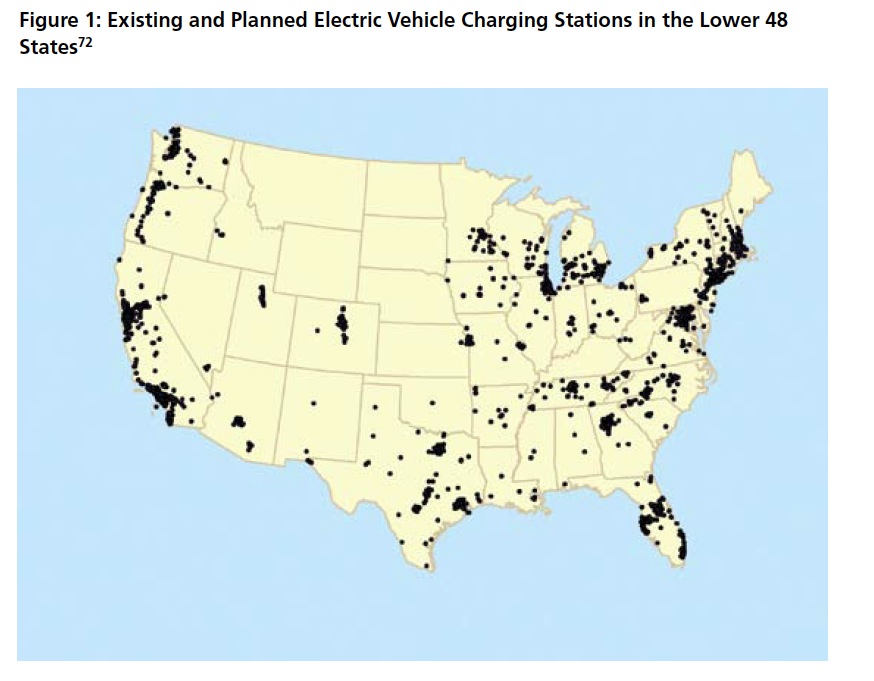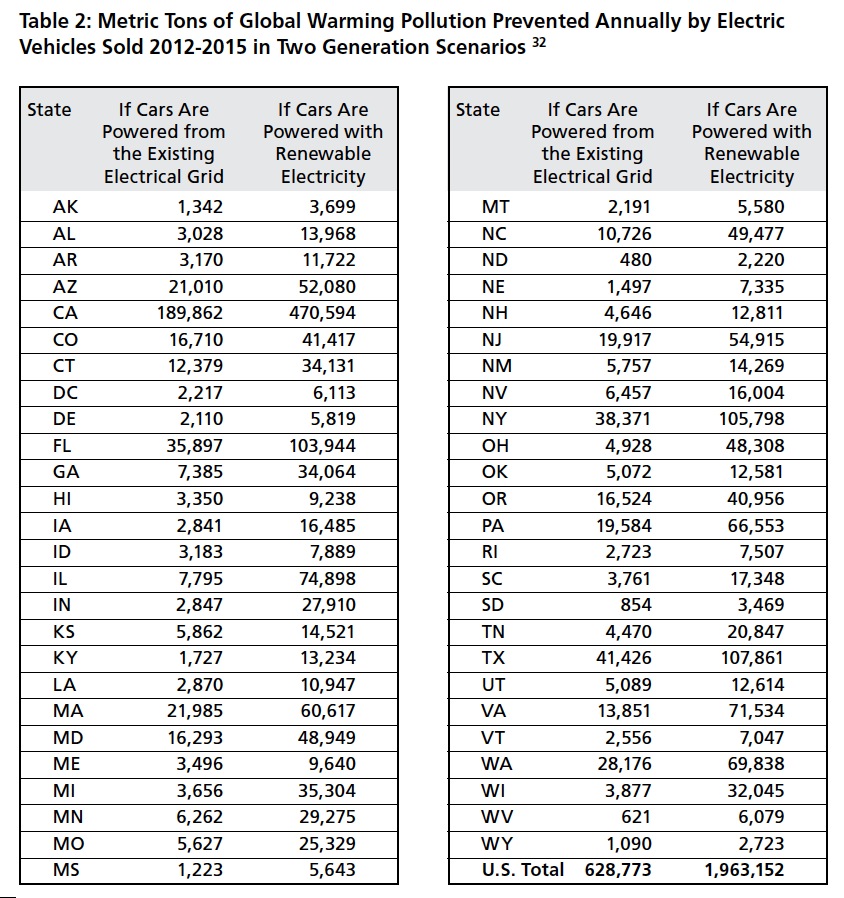ENVIRONMENT AMERICA
Executive Summary
America’s reliance on gasoline-powered vehicles has long contributed to air pollution, including global warming emissions, and our nation’s dependence on oil. In the past decade, however, the automobile market has begun to change, integrating new technologies that are dramatically less dependent on gasoline. Hybrid electric vehicles, powered in part by energy stored in a battery, have become increasingly popular.
Now, fully electric vehicles, with zero direct emissions, are emerging as a market-viable alternative to gasoline-powered vehicles. For the first time in the history of the modern automobile industry, vehicles that do not run on oil have started to appear on American roads, signaling the beginning of the end for the monopoly of the internal combustion engine.
Electric vehicles have arrived and will provide extensive environmental benefits. Increasing the number of electric vehicles on the road will yield even greater cuts in pollution and oil use.
More than 30,000 electric vehicles are already on the road in the United States, and more are coming soon. Dealers sold 17,000 electric vehicles in the first year that they were on the market, far exceeding the 9,300 hybrids sold the first full year those vehicles were available, and nearly matching the 20,000 hybrids sold in the first two years hybrids were on the market. In 2012, sales of electric vehicles through May are on pace to show tremendous growth over 2011.
- The Chevrolet Volt, a plug-in hybrid electric vehicle, is the top-selling electric vehicle model in the United States to date, with more than 15,000 units sold.
- The Nissan Leaf, an electric vehicle, is the second highest seller with more than 12,000 sold.
- Additional models, including the Ford Focus EV and the Toyota Prius Plugin Hybrid, covering a wide range of car sizes and styles, have entered the market in 2012.
The Center for Automotive Research (CAR) projects that 469,000 electric vehicles could be sold between 2012 and 2015. Meeting CAR’s sales projections could lead to benefits including:
- Preventing the emission of 629,000 metric tons of global warming pollution annually, even with much of the electricity for vehicles being generated at coal- and natural gas-fired power plants. That’s equal to removing 123,000 conventional passenger vehicles from the road. Powering the vehicles with renewable energy would raise the potential reduction in global warming pollution to 1.96 million metric tons, equal to the emissions from 385,000 conventional passenger vehicles.
- Reducing oil consumption by 2.6 million barrels of oil—the equivalent of removing 221,000 2012 model gasoline vehicles from the road altogether.
More ambitious schedules for electric vehicle deployment are possible. Putting 1 million electric vehicles on the road by 2015, as has been proposed by President Obama and others, would offer even greater pollution and oil savings benefits, reducing oil consumption by over 5.6 million barrels annually.
Electric vehicle support infrastructure is spreading rapidly through the country: as of March 2012, more than 7,000 charging stations have been installed, and more are on their way. Though most recharging of electric vehicles will happen when owners are at home, public charging stations offer drivers of electric vehicles greater flexibility. Federal grants and partnerships with private companies are helping cities pave the way for large-scale use of electric cars. Leading states have developed large numbers of charging stations, preparing them for rapid rollout of electric vehicles. (See Table ES-1.)
Electric vehicles are ready to begin a wholesale transformation of the automobile market, reducing pollution and oil dependence from personal transportation.
Public policy can help speed the day in which cars are powered by clean electricity instead of dirty oil. In order to bring this about, policymakers should:
- Incentivize owning and driving electric vehicles both with tax credits and other financial incentives.
- Encourage construction of charging stations to allow drivers the option of recharging vehicles at work or during longer trips away from home.
- Invest in research to continue reducing the cost and improving the performance of electric vehicles.
Additionally, policymakers should make sure that the value of electric vehicles is maximized by:
- Promoting renewable energy, so that the electricity used to charge electric vehicle batteries is produced as cleanly as possible.
- Developing a smart grid to allow vehicle batteries to function as storage for the larger electricity system.
About Environment America
www.environmentamerica.org
“Environment America is a federation of state-based, citizen-funded environmental advocacy organizations. We believe there’s something special about our country — and so much worth protecting and preserving for future generations. From stunning waterways like Chesapeake Bay and the Great Lakes, to beloved national parks like Acadia and Mount Rainier, America’s natural wonders enrich our lives in countless ways.”
Tags: car, Center for Automative Research, Chevrolet Volt, Electric Vehicles, Envrionment America, Nissan Leaf








 RSS Feed
RSS Feed